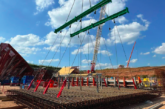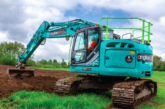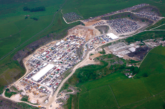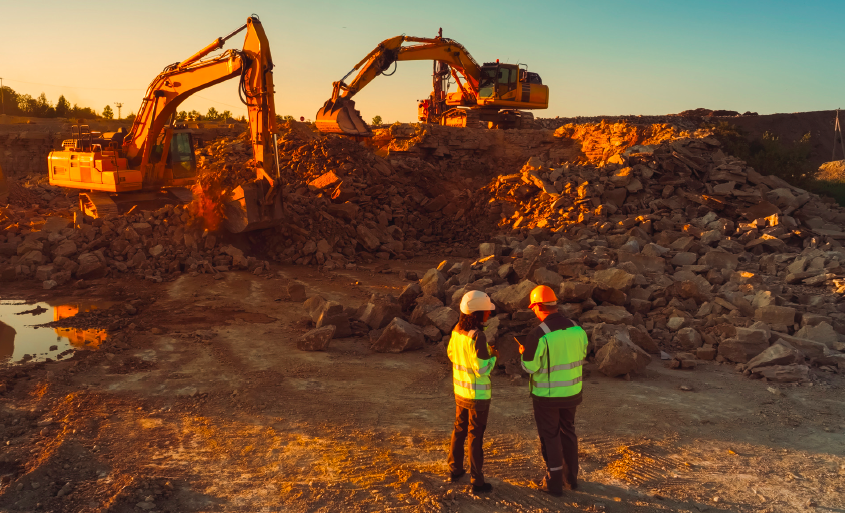
Aggreko survey highlights UK construction managers’ concerns over sustainability and operational inefficiencies. CPN looks at the findings.
The construction industry is facing a ‘perfect storm’ of challenges, as detailed in a recent report by global energy solutions provider Aggreko.
The report, titled “A Perfect Storm for European Construction?”, surveyed more than 850 construction managers across the UK and Europe to understand the obstacles they face in an increasingly strained market. The news for the UK is mixed – very aware of the importance of sustainability yet seemingly unable to do anything about becoming more sustainable in practice. Meanwhile, construction managers struggle to find the right kit for the job. Aggreko, the Glasgow-based global provider of energy services, conducted the comprehensive survey of 853 construction managers across eight major European regions: the UK, Ireland, France, Germany, Italy, Spain, Benelux, and the Nordics.
Its report sheds light on the mounting pressures faced by the construction sector due to soaring material costs, labour shortages, and higher interest rates. For UK construction managers, these challenges are compounded by an even greater focus on sustainability, with 82% of respondents stating that sustainability is more important now than it was three years ago— one of the highest scores among all regions surveyed. This push for sustainability, driven by EU targets for carbon neutrality by 2030, is placing additional demands on an already strained industry.
Keeping pace
The challenges facing the UK construction industry are, in many cases, reflective of broader European issues. The industry is grappling with sluggish productivity and slow growth, trends that have been exacerbated by global economic factors outside the sector’s control. Despite these overarching “macro” challenges, the construction sector faces a unique set of obstacles. The complex and dynamic nature of construction projects creates additional strain on contractors and equipment providers, particularly when markets are stretched thin. One of the report’s key findings is that the difficulty in securing appropriately sized equipment is severely affecting site efficiency.
According to Aggreko’s research, 37% of UK construction managers reported experiencing operational inefficiencies due to incorrectly sized equipment within the past year. While this is lower than the European average of 50%, it remains a significant issue that directly impacts both sustainability and costs.
Incorrectly specified equipment not only wastes energy and fuel but also leads to greater carbon emissions and a higher likelihood of equipment failure—both of which undermine sustainability targets. For a sector increasingly under pressure to reduce embodied carbon, this is a critical area of concern.
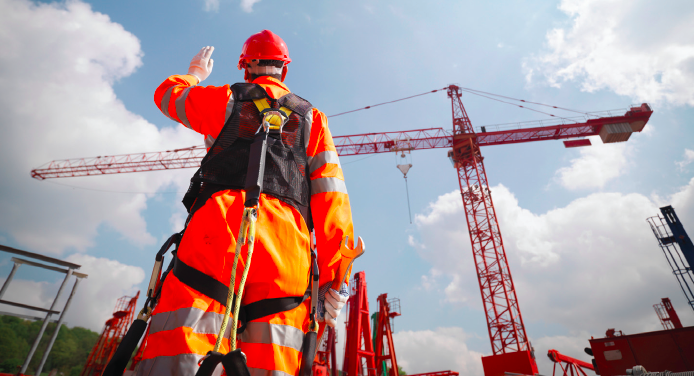 Equipment sizing
Equipment sizing
In the UK, sustainability is at the forefront of the construction industry’s agenda. As noted in the report, 82% of UK respondents recognized the increased importance of sustainability, a number that reflects the growing regulatory and environmental pressures facing the sector. However, the report also reveals that almost 16% of UK construction managers admitted they do not currently measure the environmental impact of their projects, highlighting a significant gap between intent and practice.
For UK construction managers, accurately sizing equipment can have a significant positive impact on both efficiency and sustainability. Tom
Adlington, sector sales manager for building services and construction at Aggreko, emphasizes the importance of getting this right: “The strain on construction managers is already exceedingly high, so adding the stress of having inefficient and incorrectly sized equipment is something they could do without.”
Adlington continues: “Using the expertise of their solutions provider to choose the correct equipment for the job is a vital step in achieving efficiency. Correctly sized and specified equipment offers savings on energy and is key to sustainability—making it a true win-win situation for the operator.”
Aggreko’s findings underscore that optimising performance through correct equipment sizing can significantly reduce wasted power and fuel consumption, contributing to overall sustainability efforts. By ensuring that machinery is tailored to the specific demands of each site, construction managers can improve operational efficiency and meet sustainability targets embedded in many modern contracts.
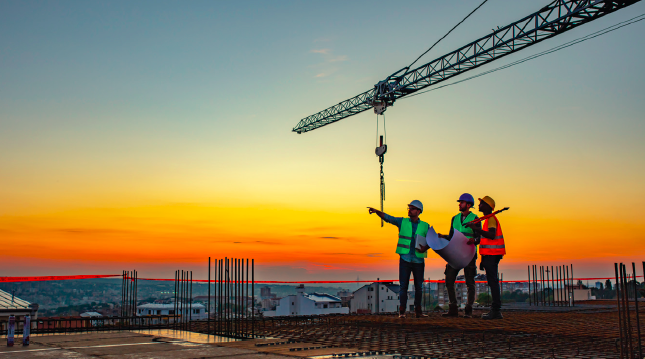 Hybrid technologies
Hybrid technologies
Alongside equipment sizing, the adoption of advanced technologies is key to improving both efficiency and sustainability. Hybrid technologies, such as the combination of traditional generators with battery energy storage systems, offer a practical solution to many of the challenges identified in the report. These systems deliver enhanced efficiency, reduced emissions, and lower noise levels, making them particularly attractive to construction managers focused on minimizing their environmental impact.
Adlington highlights the benefits of hybrid systems: “New technologies are giving stakeholders a real selection of viable solutions for their energy needs. Combining these solutions in one efficient package can provide savings and give construction managers the peace of mind that comes with knowing everything is taken care of.”
Incorporating hybrid power technologies allows construction managers to optimize energy use, especially in markets where borrowing costs and material shortages limit flexibility. These systems provide a scalable and efficient alternative to traditional power generation, helping contractors to navigate both operational and environmental demands.
UK beats Europe
While the findings of Aggreko’s survey highlight the challenges facing the construction sector, UK construction managers may find some solace in the fact that they are faring better than many of their European counterparts. In Europe as a whole, 50% of construction managers reported that incorrectly sized equipment had impacted site efficiency, compared to the 37% of UK managers who experienced similar issues.
Nevertheless, the stakes remain high. With the EU introducing stricter environmental legislation such as the Energy Performance of Buildings Directive and the Construction Products Regulation, which will soon require contractors to measure emissions across the entire construction process, the importance of optimising both efficiency and sustainability cannot be overstated.
As the UK construction industry continues to navigate economic pressures and growing sustainability demands, there are clear opportunities for improvement the report argues. In particular, it urges construction managers to focus on optimizing equipment sizing and embracing hybrid technologies as a means of improving both operational efficiency and sustainability.
Aggreko’s conclusions are optimistic. Without downplaying the challenges, it argues that there are solutions within reach such as leveraging advanced technologies and ensuring the correct specification of equipment. It says that UK construction managers using these options can not only meet their environmental obligations but also stay competitive in a rapidly evolving marketplace.
To find out more WWW.RDR.LINK/CAW010

